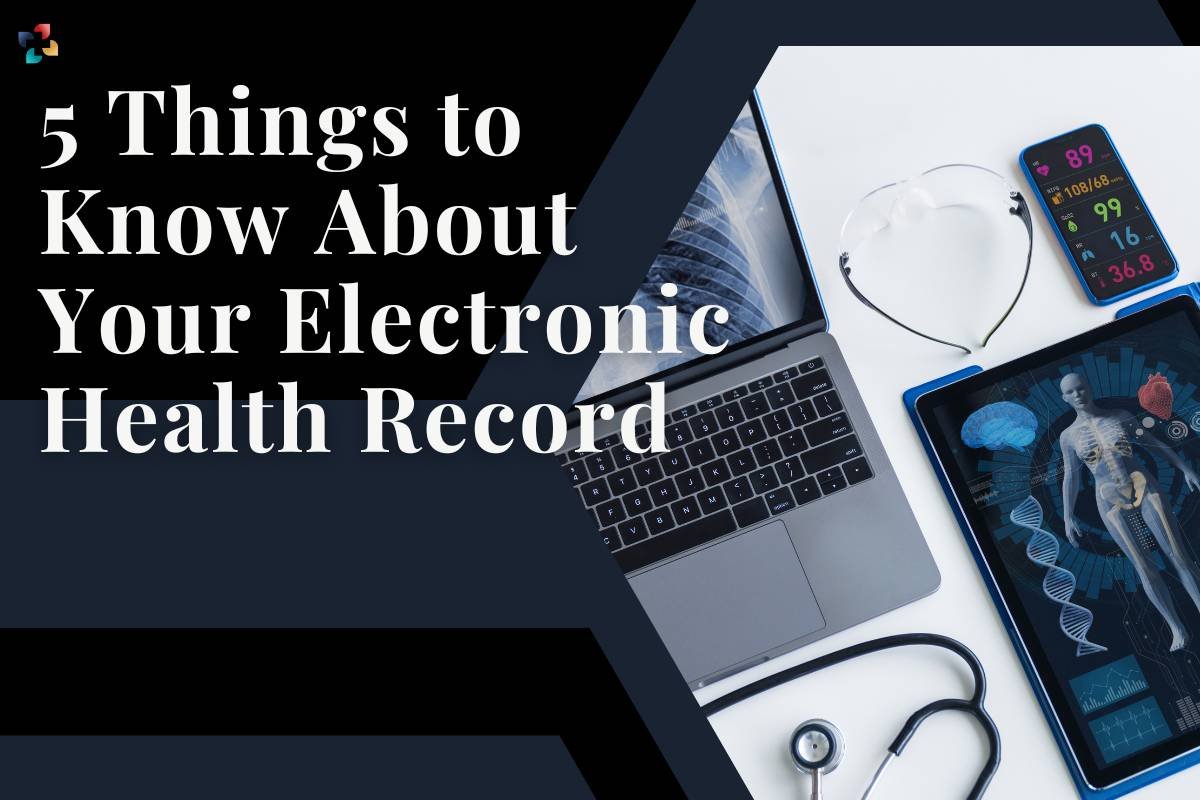Digital transformation has transformed every aspect of our lives. Even medical records have today gone electronic. In the healthcare industry, Electronic Health Records (EHRs) have become a standard part. This has made it possible to have easier access to your medical information and also largely improved patient care. However, understanding the ins and outs of your electronic health record is important.
In this comprehensive article, we’ll explore five essential things you need to know about your Electronic Health Record, ensuring you’re well-informed and empowered when it comes to your healthcare.
Here Are 5 Things to Know About Your Electronic Health Record:
1. What is an Electronic Health Record (EHR)?
Electronic Health Records, often abbreviated as EHRs, are digital versions of your paper medical charts. They contain comprehensive information about your medical history, diagnoses, medications, treatment plans, immunization dates, allergies, radiology images, and laboratory test results. EHRs are designed to be shared among healthcare providers to facilitate seamless and coordinated care.

Your EHR is like a digital vault of your health information, offering a comprehensive view of your medical journey. It encompasses everything from your initial visits to healthcare providers, including general practitioners, specialists, and hospital stays. It houses your current health issues, past illnesses, treatment plans, medications, allergies, and any surgeries or procedures you’ve undergone. It also contains vital signs, lab test results, and medical images, such as X-rays and MRIs.
2. Your EHR is Comprehensive
One of the key benefits of EHRs is their comprehensiveness. Your EHR contains a wealth of information, providing a holistic view of your health. This includes not only your current health issues but also your complete medical history, enabling healthcare providers to make well-informed decisions about your care. It’s crucial to review your EHR regularly to ensure accuracy and completeness.
A comprehensive EHR is invaluable when you’re dealing with complex or chronic medical conditions. It allows your healthcare team to track the progression of your illnesses over time, assess the impact of various treatments, and make informed decisions about your care. Moreover, in emergencies, having a complete EHR readily accessible can be a lifesaver, as it ensures that healthcare providers have all the necessary information to provide the best care.
3. You Have a Right to Access Your EHR
Under the Health Insurance Portability and Accountability Act (HIPAA), you have the right to access your EHR. You can request a copy of your EHR from your healthcare provider or the institution that maintains it. They must provide you with access within 30 days of your request. Some healthcare providers offer patient portals where you can access your EHR online, making it even more convenient to stay updated on your health information.

Your right to access your EHR is a fundamental part of patient-centered care. It empowers you to be an active participant in your healthcare journey. By reviewing your EHR, you can better understand your health conditions, treatment plans, and test results. This knowledge enables you to ask informed questions during your appointments and engage in shared decision-making with your healthcare providers.
4. EHRs Are Protected by Privacy Laws
Your EHR is protected by strict privacy and security laws. EHRs contain sensitive personal information, so it’s crucial to ensure that your data is kept safe and only accessed by authorized individuals. Healthcare providers and institutions are required to have measures in place to safeguard your EHR and to notify you in the event of a data breach.
The privacy and security of your EHR are of paramount importance. Healthcare organizations are obligated to implement various security measures, such as encryption and secure access controls, to protect your health information. Additionally, they must have protocols in place to monitor and audit access to EHRs, ensuring that only authorized personnel can view your records.
5. Your EHR Can Improve Your Healthcare
EHRs have the potential to enhance the quality of your healthcare. They allow for more efficient sharing of information among your healthcare providers, reducing the chances of duplication of tests or medical errors. EHRs also enable you to be more engaged in your healthcare, as you can access your records and better understand your health conditions and treatment plans.

Your EHR can serve as a valuable tool in improving your healthcare experience. When your healthcare providers have access to your EHR, they can make more informed decisions about your care. For example, if you’re admitted to a hospital, the medical team can quickly access your EHR to review your medical history, allergies, and medications. This streamlined access helps ensure that you receive safe and effective care.
In addition, EHRs offer a direct line of communication between you and your healthcare providers. Some EHR systems include patient portals, allowing you to securely message your doctors, request prescription refills and schedule appointments. This level of engagement can lead to more personalized and patient-centered care.
Moreover, EHRs provide a platform for the integration of decision support tools. These tools can help healthcare providers make evidence-based decisions and ensure that they receive the most up-to-date and effective treatments.
Conclusion
In conclusion, your electronic health record has proven to be a powerful tool that can empower you to take control of your healthcare. Understanding what is in your electronic health record, your right to access, and the importance of privacy and security can make a huge difference in the quality of healthcare you receive.
By staying informed and engaged with your EHR, you can make the most of this digital transformation in healthcare. Your EHR is not just a collection of data; it’s a key to better healthcare and a healthier future.








